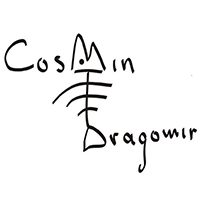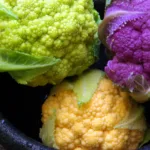AI stayed with the stories in the newest episode Tasty Memories with the Timisoara Caius Mersa, the man who imported the soup-bar concept to Romania. We talked about soups, pastries, but also about Timișoara - European Capital of Culture in 2023.
The podcast can be listened to on all audio streaming platforms or directly here:
What does Romanian mean from a gastronomic point of view?
"It's very simple. Traditionally, first of all, it must be defined as a geographical area, secondly as an area of the population that exists in our country, that eats and tastes, created such things and yes, we suffer from this racism directed towards us, but almost all the things that are done here are ours. I make two very clear parallels: I did a study on the history of the noodle and somehow the noodle leaves Mongolia, undergoes some transformations in China, from China it reaches the Middle East, then to North Africa and from there it reaches Italy. And if we follow the development of grains and raw materials for noodles, pasta, whatever you want to call it, we will come to realize that pasta is not Italian. So even Italians don't have pasta if we are so racist with our food.
That's one of the theories I support. Another theory I support is the sarmal theory. Everyone says that sarmals are not ours, that they were invented by others, and the next question for those who say that sarmals are not ours and that they are Turkish – have they eaten sarmals from us and Turkish sarmals?
Let them see that they are two different things. And they're not even from the Turks, because the ground meat that ended up in sarmales wasn't invented there, so we're going a little further back, in the desert. They are not the Turks' either, so I think I have clarified the problem with what is and is not ours. Yes, they are ours too. It's also about marketing and we have to get this thing right, just like the Italians got it right with pasta."
What is the philosophy of Romanian cuisine?
"For us, somehow, food is like football. The first people I discussed the idea of this PhD with laughed and made me talk to their mother, grandmother, their relatives, that they actually know how to make food and mother's food is the best, and that's about it it's the idea of a meal. We have to get over it a bit and get to look professionally at the idea of culinary art, food, kitchen, everything we are discussing.
I, for example, have a piece of my PhD in visual arts, I have a parallel between taste, color and contrasts. There I linked to a theory that I haven't published at the moment, but it will also be part of that doctorate. We have to look professionally at Romanian cuisine. First of all, it must be well organized. Of all the books published in Romania, maximum 10% represents something you could rely on, read and be inspired by. The doctorate is based in structure and way of looking at Italian cuisine, which has the best study done. I'm working from some books on the history of Italian cuisine and I'm actually taking everything I know from Romanian cuisine and introducing through that grill the Italian style of looking at culinary art."
What would be the "deadly sin" of our soup makers versus the ramen technique?
“We don't really put much emphasis on limiting certain ingredients, certain things about calories and all that. At one point I saw a discussion about Radu Anton Roman's Zalău steak. We call these things traditional and, for example, for the Romanian peasant from Transylvania, it was traditional about 300 years ago to fast 6 months a year, so those loaded tables that we keep talking about, that flow by, you saw them at the nobles or at holiday meals.
In everyday food we don't really come across these things, and that's why we tend to use the eternal thing «with all» for everything. Somehow, things have to be thought of and weighed in some way because they have a purpose in one way or another, not necessarily putting everything in there.
The soup itself is a thing with everything, but those things put in the soup also have their meaning, because if we follow those soups we don't find them only here or only that type of soup we find only here. There are many tastes that exist geographically without us knowing about them. I have a colleague who told me she had eaten pickles around South Korea and they tasted amazingly similar to our pickles.
It is clear that there is no similarity between South Korea and Romania, but they are two things that have developed similarly and our way of fermentation with their way of fermentation creates the same tastes. That's my opinion, that we took some recipes that we want to make a little fanciful and we put a lot of stuff everywhere, so that it's with everything."
Will gastronomy be included in the Timișoara - Cultural Capital 2023 project?
"Yes. Quite late, we from this branch entered the discussions with the Cultural Capital, but there is an association in Timișoara, called HORETIM, which is discussing at the level of the town hall and the County Council regarding our representation in the association, and they are already working on a menu of Banat, for the restaurants that will participate on the gastronomy side, I personally work on the cafe side, let's make a map of the cafes in Timișoara, so yes, a lot of work is being done on this topic and there are a lot of people involved. Somehow this idea of a Cultural Capital is like an awakening."
Digital Chronicles podcast is supported by Raiffeisen Bank Romania and of Electrolux Romania. The project partners are convinced that through access to education, culture and technology, we can become the best version of ourselves.
Made by the agency Zaga Brand and Human Made Art Association (HUMART), the Digital Chronicles podcast is currently the most popular cultural product in Apple Podcasts both in Romania and in several countries where important communities of Romanians live. In the Travel section, the Cronicari Digitali podcast is on the first position in Romania.








